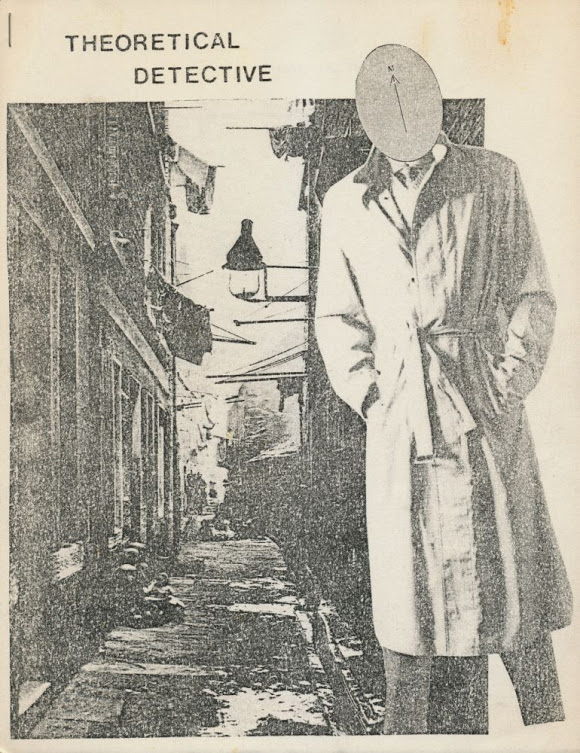Here’s an interesting piece of Ligotti ephemera, for which I’ve been searching for many years. It’s a sonnet Ligotti published in a very obscure 1982 speculative detective fiction fanzine called Theoretical Detective (edited by Tine Said). My interest in the material relates to a long-term fascination with Ligotti, on the one hand, and with philosophical anti-detective stories, on the other hand. For an excellent introduction to the latter, see Stefano Tani’s severely underrated dissertation The Doomed Detective: The Contribution of the Detective Novel to Postmodern American and Italian Fiction. The sonnet appeared under the pseudonym Frank Santino. According to user BeelzeBob, who posted the transcription of the sonnet to Ligotti.net, Ligotti writes:
As anyone can see who knows anything about sonnets – and I don’t know much – this one is highly unconventional. It’s basically Elizabethan or Shakespearean in form, though it has an opening stanza that’s a quintain, rather than a quatrain, with an abccb rhyme scheme, the last-named feature not being unique in itself but pretty much unheard of in a sonnet. Otherwise, the rhyme scheme and closing couplet is conventional, though the rhythm sometimes is not. Given the theme of the fanzine, I took the detective story as my subject. The plot is derived from Raymond Chandler’s The Big Sleep. (I went through a period of fanatic admiration for Chandler’s novels.) Nevertheless, the tone and language keep an Elizabethan feel. The reason for that is derived from the surname of Chandler’s detective, Philip Marlowe, which he deliberately spelled like that of the Elizabethan dramatist Christopher Marlowe, and I make a couple of allusions to Marlowe’s Faust play. As for the plot, it’s not unusual for Chandler’s novels in that Marlowe takes on a case, is betrayed or deceived by someone who plays a main role in the case, and ultimately foils the betrayer or deceiver. Chandler also gave his hero-detective an antique code of ethics, though he’s by no means naïve, and a tendency to become emotionally attached to an idealized female client. None of this is original to Chandler, though the combination of these elements may be. I wrote it a long time ago, and it was intended to accompany a cross-genre detective-horror story that I ultimately destroyed because it really wasn’t any good. It’s title was ‘The Angel That Fell from the Fifteenth Floor.’ I’m not a fan of cross-genre fiction, but as Chandler was concerned with creating an atmosphere of the unseen and unknown in his novels, stating that in his works he wanted to convey a sense of ‘the country behind the hill,’ I felt that ambition allied them with the kind of horror stories I most admire. Chandler was also a great prose stylist, which is why I was attracted to his books and none other in the detective genre. Here’s the poem as it appeared in Theoretical Detective.
The Blonde: A Sonnet
by Frank SantinoBlack Slacks, shadow eyes, and a blood-red shirt.
“Blouson,” she says; “Uh-huh,” I says, bleakly
Fiddling with the office blinds,
Enclosing her in venetian lines.
Oh, please sigh, and weakly.In crimson twilight I first opened the case,
A Marlovian Faust for Helen, my muse,
Who planted her clues by the moon’s blushèd face.
They blossomed in colors of the freshly exhumed.Then under the star-shattered window of night,
Out came her lies, and each brightly shone,
Turning blacks and reds to a bliss of blue light,
And blinded I fell toward an angelic unknown.But a gun, scarlet fingers, she laughed, “So long, Frank.”
Now who, Mephistopheles, had it filled full of blanks?
